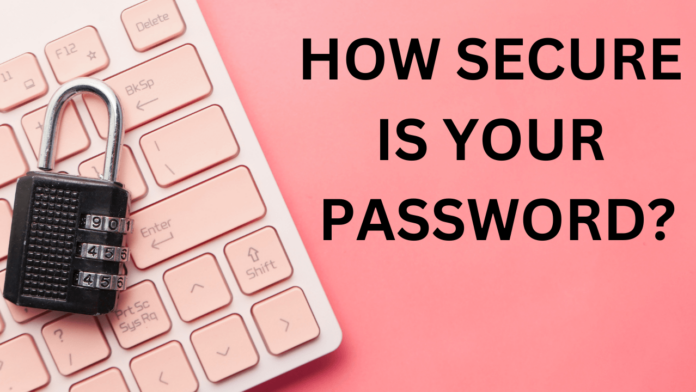In the contemporary digital landscape, where our lives are intricately interwoven with technology, the importance of robust security measures cannot be emphasized enough. Our daily routines, whether work-related or for leisure, are predominantly conducted online, making our personal information more vulnerable than ever. In this vast expanse of data, the safeguarding of our digital realm relies heavily on the strength of our passwords – the last line of defense against potential financial losses and the compromise of private data.
Think of your password not just as a string of characters but as a metaphorical key, a guardian of your digital realm. It acts as a shield, deterring potential threats and fortifying your online presence. The strength of this shield is the bedrock of cybersecurity, akin to fortifying the front door against unwelcome intruders in the physical world.
Content
Common password mistakes
Rather than adhering to a checklist of dos and don’ts, understanding password security involves recognizing potential pitfalls and adopting practices that elevate digital security. A recentresearch by ExpressVPN sheds light on common mistakes to avoid when crafting these digital keys.
Their survey revealed some shocking results from the participants. Some of them can be seen below:
A prevalent error is the temptation to opt for simplicity, choosing easily guessable combinations like “password12345” These are low-hanging fruit for hackers seeking to exploit vulnerabilities.
Personal details, such as birthdays or pet names, pose another risk, as hackers can easily exploit readily available information to gain unauthorized access. Reusing the same password across multiple accounts is a security compromise waiting to happen, akin to using a single key for all locks.
The length of a password is not a mere technicality; it plays a pivotal role in its strength. Shorter passwords are like small locks, making it easier for hackers to crack them open.
The use of common words further weakens the defense, as hackers can easily decipher straightforward passwords.
Neglecting the regular change of passwords is an oversight that can compromise even the most robust of them over time. Sharing passwords, even with friends, dilutes the secrecy of your digital code, leaving it more susceptible to unauthorized access.
Ignoring additional security measures, such as two-factor authentication (2FA), leaves a critical gap in your defense against potential threats.
Elevating password security involves a thoughtful mix of characters, including numbers, symbols, and both uppercase and lowercase letters. Avoiding easily guessable personal information, opting for uniqueness, and refraining from password reuse are fundamental practices.
Consider utilizing a password manager, a digital ally that generates and securely stores complex passwords, relieving the burden of memorization. The importance of keeping passwords confidential, akin to safeguarding a superhero's identity, cannot be emphasized enough.
Utilizing a password manager with two-factor authentication
Utilizing password managers and two-factor authentication (2FA) transforms the digital landscape into a fortress of security. Password managers, acting as memory aids, create robust passwords and simplify the login process, saving time and minimizing the risk of password-related errors. They offer an additional layer of protection by safeguarding passwords behind a master password – a digital super shield that fortifies your online defenses.
2FA, the sidekick in this digital narrative, adds an extra layer of security beyond passwords, making unauthorized access even more challenging. This dynamic duo works seamlessly across various digital platforms, providing a trusty companion for online activities. With 2FA, users retain control over their digital safety, acting as the superheroes of their own digital worlds.
Conclusion
In conclusion, as we traverse the intricate landscape of our interconnected world, the proactive fortification of our digital existence through robust password security becomes paramount. By steering clear of common pitfalls, wholeheartedly embracing secure practices, and incorporating additional layers of defense such as two-factor authentication and password managers, users can erect a formidable barrier against the ever-evolving spectrum of cyber threats.
It is imperative to recognize that today’s choices in securing our digital identities are key to a more secure and resilient tomorrow. Beyond personal responsibility, it is a collective endeavor to contribute to a safer online environment for all. In this dynamic digital era, where technology continually shapes our lives, the transformative power of these secure practices is not just an individual investment but a commitment to the broader community’s digital well-being. As we move forward, let us collectively embrace the evolving landscape of cybersecurity, ensuring that our digital realms stand strong against possible challenges.
